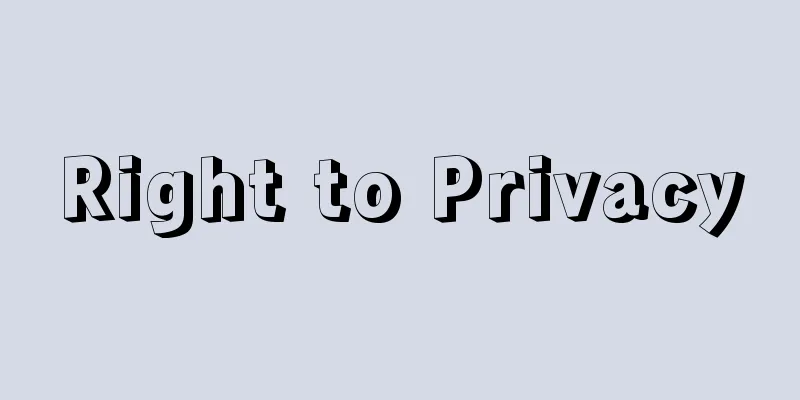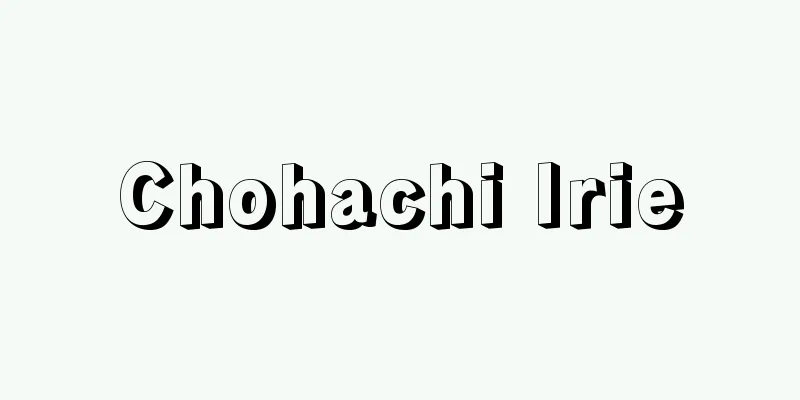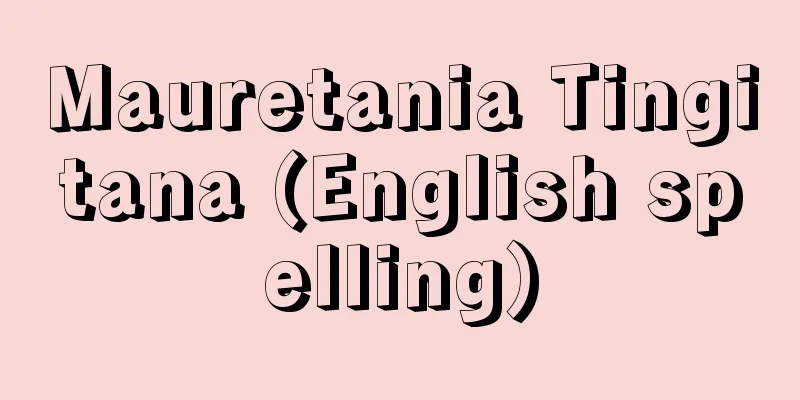Right to Privacy

|
In the traditional sense, it means the "right to be let alone," that is, the right of a person not to have his or her private life or affairs exposed to the eyes of others without permission. For example, violation of this right becomes an issue when the inside of one's home or personal conversations are made public, one's private room is peered into, or one's past career is used in novels or other writings. The right to one's image is also one of these rights. The right to privacy is a concept that has developed in the United States since the end of the 19th century, particularly in order to protect an individual's peaceful private life from exposure and disclosure by the mass media. In order to prove that this right has been violated, it is sufficient to prove that the intrusion into one's private life caused mental distress; monetary damages are not necessary. Also, unlike defamation, it is not necessary for an individual's social standing or credibility to be lowered, and liability cannot be avoided even if the statements made are proven to be true. It is often difficult to balance the right to privacy, which protects an individual's peaceful private life, with the freedom of expression, which serves the public's right to know, but it is decided by carefully weighing the interests of both. As seen in the reporting activities of the mass media, when it concerns "public figures" such as politicians, parties involved in major incidents, or entertainers, that is, figures in a social position that is the subject of legitimate public interest, or when it concerns matters of public interest, even if private matters or private lives are made public to a certain extent, it does not constitute an invasion of privacy. Remedies for infringement include compensation for damages and public apologies, and because ex post facto remedies once private matters or private life have been made public often do not adequately protect privacy, it may also be possible to request an injunction to stop publication in advance. [Junichi Hamada] Case ExamplesIn Japan, a famous case was filed in which former Foreign Minister Hachiro Arita, who was the model for Yukio Mishima's novel Utage no Ato (After the Banquet) (1960), sought an advertisement of apology and damages for the invasion of privacy. The Tokyo District Court's ruling on this case (September 28, 1964) cited the idea of individual dignity, which is the fundamental principle of modern law and the Japanese Constitution, and recognized the "right to not have one's private life disclosed without permission" as a type of personal right. The ruling stated that for this right to be violated, "(1) the contents of what was made public must be (a) a fact of private life or something that may be perceived as such, (b) something that would be recognized as something that the private individual would not want to be made public if they were in the position of the private individual, based on the sensibility of the general public, (c) something that is not yet known to the general public, and (2) the private individual actually felt discomfort or anxiety as a result of the disclosure." In addition, regarding the film "Eros + Massacre" (1970), directed and produced by Yoshida Yoshishige, former member of the House of Representatives and women's liberation and socialist activist Kamichika Ichiko sought an injunction to stop the screening of the film on the grounds of defamation and invasion of privacy. The Tokyo High Court's decision on this case (April 13, 1970) denied the claim, stating that "it cannot be said that imminent and irreparable serious damage has been caused to such an extent that it would be necessary to stop the public screening of the film" (a settlement was reached in May 1976). This right to privacy has been understood as part of the "right to pursue happiness" in Article 13 of the Japanese Constitution and has been firmly established in society, but in the 1980s, violations of privacy, particularly by photo-based weekly magazines, became a serious problem. This peaked with the 1986 incident in which popular TV personality Beat Takeshi (Kitano Takeshi) stormed into the editorial offices of photo-based weekly magazine FRIDAY, drawing public attention to violations of privacy and leading to the assertion of the "rights of those being interviewed." [Junichi Hamada] Protection measuresThe modern right to privacy is understood as the right to self-determination related to personal autonomy, and is sometimes invoked in situations such as the right to abortion, freedom of dress and lifestyle, or the right to euthanasia. It also plays an important role in protecting citizens' lives by being understood as the "right to control information about oneself." In today's information society, where computer-based mass information processing technology has developed, administrative agencies and private companies have begun to accumulate various records about individuals' private lives in computer-based databases in order to streamline administrative processes. In order to effectively check the dangers that this trend poses to privacy from the individual's side, it is necessary to institutionalize the right to view, correct, and appeal the recorded data about oneself, as well as restrictions on the collection and input of specific data and the prohibition of the misuse of recorded data. In Europe and the United States, privacy protection laws incorporating these purposes were enacted in the 1970s, and in Japan, after a series of personal information protection ordinances in local governments, the "Act on the Protection of Personal Information Related to Computer Processing Held by Administrative Organs" was enacted in 1988 (Showa 63). Since then, as society has become more information-based, problems surrounding privacy have increased. In particular, the creation of databases of personal information and the leaking of such information have become problems, and discussions have begun on the need for a comprehensive Personal Information Protection Act that would include the private sector. In 1999, the Basic Resident Registration Act was revised, which was criticized as leading to a "universal national identification number system," and the Communications Interception Act was enacted as part of legislation to combat organized crime, raising the issue of how to balance the convenience of information technology with privacy protection. [Junichi Hamada] "Privacy Studies" edited by Kainou Michitaka and Ito Masami (1962, Nippon Hyoronsha)" ▽ "The Right to Privacy" by Ito Masami (1963, Iwanami Shoten)" ▽ "Modern Privacy" by Horibe Masao (Iwanami Shinsho)" ▽ "The Right to Privacy" by Sakamoto Masanari (1982, Seibundo)" ▽ "Comparative Law of Information Disclosure and Privacy" edited by Horibe Masao (1996, Nippon Hyoronsha)" ▽ "Invasion of Privacy and Civil Liability" by Takeda Minoru (1998, Hanrei Times) [References] | | | | | |Source: Shogakukan Encyclopedia Nipponica About Encyclopedia Nipponica Information | Legend |
|
伝統的な意味では、「一人で放っておいてもらう権利」right to be let alone、つまり、人がその私生活や私事をみだりに他人の目にさらされない権利をいう。たとえば、家庭の内情や個人の会話を公開されたり、私室をのぞきこまれたり、過去の経歴を小説などに利用されたりした場合に、この権利の侵害が問題となる。肖像権も、この権利の一つである。 プライバシーの権利は、とりわけ、マス・メディアによる暴露、公開から個人の平穏な私生活を守るために、19世紀末以来、アメリカで発達してきた考え方である。この権利が侵害されたとするには、単に、私的な生活領域への侵入によって精神的苦痛を受けたことを証明するだけで十分であり、金銭的損害を受ける必要はない。また、名誉毀損(きそん)の場合と異なって、個人の社会的評価や信用が低下させられることを必要としないし、表現されたことが真実であるという証明があっても責任を免れうるわけではない。個人の平穏な私生活を保護するプライバシーの権利と、国民の知る権利に奉仕する意義をもつ表現の自由との調整は困難な場合が多いが、双方の利益を慎重に比較衡量することによって決定される。マス・メディアの報道活動にみられるように、政治家や大事件の当事者、あるいは芸能人のような「公的存在」、つまり公衆の正当な関心の対象となる社会的地位にある存在にかかわる場合、あるいは公共の利害に関係する事柄であるときは、私事や私生活がある程度公表されても、プライバシー侵害にはならない。侵害に対する救済方法としては、損害賠償や謝罪広告があるほか、私事や私生活がいったん公開されたのちの事後的な救済ではプライバシーの十分な保護を図れないことも多いので、公表を事前に差し止める請求も可能であると考えられる。 [浜田純一] 事件例日本では、三島由紀夫の小説『宴(うたげ)のあと』(1960)をめぐって、この小説のモデルとされた元外務大臣有田八郎が、プライバシーの侵害を理由に謝罪広告と損害賠償を請求した事件が有名である。この事件に関する東京地裁判決(1964年9月28日)は、近代法および日本国憲法の根本理念である個人の尊厳の思想を引きながら、人格権の一種として「私生活をみだりに公開されない権利」を認めた。そこでは、この権利の侵害が成立するには、「(1)公開された内容が、(a)私生活上の事実またはそれらしく受け取られるおそれのある事柄であり、(b)一般人の感受性を基準にして当該私人の立場にたった場合公開を欲しないであろうと認められる事柄であり、(c)一般の人々にいまだ知られていない事柄であること、(2)公開により当該私人が実際に不快、不安の念を覚えたこと」が必要であるとされている。また、吉田喜重(よししげ)の監督・製作になる映画『エロス+(プラス)虐殺』(1970)をめぐって、元衆議院議員で女性解放運動・社会主義運動家である神近(かみちか)市子が、名誉毀損とプライバシーの侵害を理由にこの映画の上映の差止めを請求した事件がある。この事件に対する東京高裁決定(1970年4月13日)は、「映画の公開上映を差し止めなければならない程度に差し迫った、しかも回復不可能な重大な損害が生じているとはいえない」として、この請求を認めなかった(76年5月和解成立)。 このプライバシーの権利は、日本国憲法第13条の「幸福追求権」の一環をなすものとして理解され、社会的に定着してきたが、1980年代には、とりわけ写真週刊誌によるプライバシーの侵害が深刻な問題となった。その頂点で起きたテレビの人気タレント、ビートたけし(北野武)による写真週刊誌『FRIDAY(フライデー)』編集部乱入事件(1986)は、プライバシー侵害に人々の関心を向けさせ、「取材される側の権利」が主張されるきっかけとなった。 [浜田純一] 保護対策現代のプライバシーの権利は、人格的自律にかかわる自己決定権としても理解され、妊娠中絶や服装・ライフスタイルなどの自由、あるいは安楽死を求める権利などの場面でも援用されることがあるが、また、「自己についての情報をコントロールする権利」として理解されることによって、市民生活の保護のために重要な役割を果たしている。コンピュータを用いた大量の情報処理技術が発達した今日の情報化社会においては、事務処理の効率化のために行政機関や民間企業が、個人の私生活に関するさまざまな記録を、コンピュータを利用したデータバンクに集積するようになってきている。こうした動向がプライバシーに与える危険性を個人の側から有効にチェックするために、自分に関する収録データについての閲覧請求権、訂正請求権、不服申立権や、特定データの収集や入力の制限、さらに収録データの流用禁止などを制度化することが必要となる。欧米諸国では1970年代に、こうした趣旨を盛り込んだプライバシー保護法が制定されたが、日本でも、自治体における個人情報保護条例の積み重ねを経て、88年(昭和63)に、「行政機関の保有する電子計算機処理に係る個人情報の保護に関する法律」が制定された。 その後も、社会の情報化の進展とともに、プライバシーをめぐる問題が増加してきた。とくに、個人情報のデータベース化やその漏洩(ろうえい)が問題になり、民間部門を含む包括的個人情報保護法の必要性が議論され始めた。1999年(平成11)には、「国民総背番号制」につながると批判された住民基本台帳法の改正、また、組織犯罪対策立法の一環として通信傍受法の制定が行われ、情報化による利便とプライバシー保護との調整が大きな問題となった。 [浜田純一] 『戒能通孝・伊藤正己編著『プライヴァシー研究』(1962・日本評論社)』▽『伊藤正己著『プライバシーの権利』(1963・岩波書店)』▽『堀部政男著『現代のプライバシー』(岩波新書)』▽『阪本昌成著『プライヴァシーの権利』(1982・成文堂)』▽『堀部政男編著『情報公開・プライバシーの比較法』(1996・日本評論社)』▽『竹田稔著『プライバシー侵害と民事責任』(1998・判例時報社)』 [参照項目] | | | | | |出典 小学館 日本大百科全書(ニッポニカ)日本大百科全書(ニッポニカ)について 情報 | 凡例 |
>>: Brighton (English spelling)
Recommend
Johanson, CE
…Both ends of a rectangular cross section are fin...
cutter
〘noun〙 (cutter)① A tool for cutting or scraping. A...
"God Save Our Emperor" - God Save Our Emperor
...Needless to say, after the revolution, the Sov...
Shedd, JG (English spelling) SheddJG
...But the JG Shedd Aquarium, which opened on Lak...
crop
In sea turtles, birds, and mammals, the epitheliu...
City Charter
American cities are granted autonomy through city ...
Karimi (English spelling)
…The name of Islamic merchants who were active in...
Good ninja - Ryonin
Year of death: 1132 Year of birth: Enkyu 5 (1073) ...
Sensible things - Sensible things
…The perception of objects, including their unsee...
Karl Birnbaum
1878‐1950? German psychiatrist. Director of the Be...
American
...In April 1901, the paper, which had been fierc...
basket flower
...Sulpher Queen cv. Sulpher Queen is a horticult...
The Tale of Utsubo
A story from the mid-Heian period. The most widely...
Four Parts Classification - Shibubunrui (English)
A classification system for Chinese books. It is d...
Jarkas
...Also known as Adig. In English they are called...









